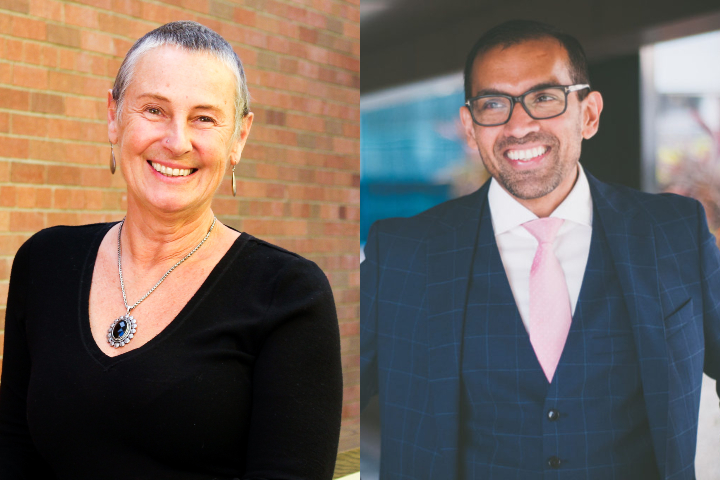She said he sexually harassed students. He said she’s “obsessed” with him and hell-bent on a racist tirade.

Last month, a judge in Trinidad and Tobago sided with Emir Crowne, ordering Julie Macfarlane to pay him around $100,000 for defamation. The judge also ordered both parties not to speak publicly about the proceedings.
The case, which spans years and continents, electrified campuses across Canada for the salacious aspect of dueling colleagues and because it hit on the thorny issue of balancing academic freedom and privacy with decreasing sexual violence levels.
On May 5, Crowne, who declined an interview via his lawyer, wrote a blog post reacting to the case’s conclusion:
“Vindication? Perhaps. But one can never truly be compensated for a life destroyed by the bald lies of a racist bully.”
In an emailed statement sent via his lawyer, Crowne told Global News:
“Julie Macfarlane is the racist white woman who did this to me. She made up a vicious pack of lies and preyed on society’s good nature. She exploited latent racist tendencies and deep-rooted fears. She is a fraud. This judgment is the start of me reclaiming my life, fighting back against the tide of suspicion and depression that has wrecked my life for the past decade.”
Macfarlane has previously said race has nothing to do with her informing Crowne’s employers about the allegations against him. As to whether Macfarlane will stop speaking publicly about Crowne, his lawyer Matthew Gayle said he wasn’t sure.
“One thing is for certain the incontrovertible fact is every time she has been asked to account for the claims she has made about my client, she has summarily failed to produce one iota of evidence, relying instead on hyperbole and cosmetic rhetoric,” Gayle said in an emailed statement.
The case dates back to Crowne’s time working as a law professor at the University of Windsor, in Ontario, where Macfarlane still works in the same capacity.

Get daily National news
Crowne left the university in December 2014, a departure Macfarlane says was for sexual harassment of students, while he says it was for something unrelated that is covered by a confidentiality agreement.
After he left, Macfarlane continued to inform his future employers or prospective employers about the alleged sexual harassment.
“Like a woman scorned she followed me from Ontario, Canada to Kingston, Jamaica to Port-of-Spain, Trinidad,” Crowne wrote.

Her “campaign of lies” cost him job after job, he wrote, before he finally decided to sue for defamation from Trinidad. That case was sealed, effectively prohibiting Global News from reporting on the details.
However, documents about the allegations and that lawsuit were filed in Ontario Superior Court in 2019 as part of a lawsuit Macfarlane brought against the Canadian Universities Reciprocal Insurance Exchange (CURIE) for failing to defend her against Crowne’s defamation case because her allegedly defamatory comments were made in a professional capacity.
In the end, Macfarlane won her insurance case against CURIE in Ontario and then lost her defamation case to Crowne in Trinidad. Representatives for CURIE could not be reached for comment. A spokesperson for the university declined to comment.

“Despite publicly pleading ‘truth’ in the court of public opinion, Mcfarlane was unable to substantiate her wild, reckless and racist behaviour in an actual court of law,” wrote Crowne in a blog post titled, “The Power of White Tears.”
“I have decided to speak out … because it is a tale familiar to many Caribbean men living in white-majority countries. White tears have the ability to wipe away a lifetime of work and integrity in the blink of an eye.”
It’s unclear how much of the Trinidad case, if any, Macfarlane showed up for. She’d previously told Global News she didn’t intend to participate.
She called the process “a complete joke … absolutely no fair process or regard for my situation and apparently completely biased in favour of the plaintiff making whatever assertion he wants.”
In an email, Macfarlane’s lawyer, Natalie MacDonald said, “We stand by what has been said.”


_848x480_1397405763961.jpg?h=article-hero-560-keepratio&w=article-hero-small-keepratio&crop=1&quality=70&strip=all)



Comments
Want to discuss? Please read our Commenting Policy first.